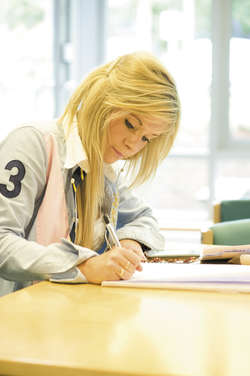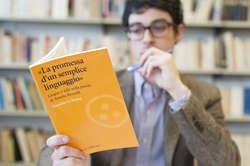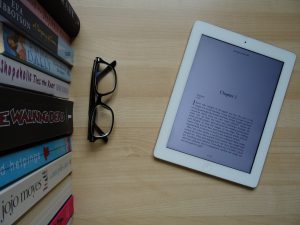 As you get into the last few weeks of work on your Masters dissertation or major project, it should all be coming together. This info tip aims to give you the tools to get everything done in time – and make your dissertation a shining success!
As you get into the last few weeks of work on your Masters dissertation or major project, it should all be coming together. This info tip aims to give you the tools to get everything done in time – and make your dissertation a shining success!
Editing, proof-reading and referencing
At this stage, you should be starting to think about editing and proof-reading. It’s best not to leave this till the last minute as it’s rarely just a matter of checking your spelling. There may be missing citation details to find, arguments that would be better placed elsewhere, repetition to remove, and word count to reduce. All these things take more time than you think.
Study Advice have a guide on writing at Masters’ level which will help you to see what you need to aim at when editing your writing. There is also a guide on academic writing including tips for more effective proof-reading. If you have five minutes, you could watch one of their video tutorials on dissertations.
It can make a real difference to your mark to make sure your citations are all correct, complete and consistent. This can be a slow process so allow plenty of time. There is information about different referencing styles and how to reference more unusual sources in our Citing References guide. You could also look at the Study Advisers’ video tutorials on referencing. If you’re still not sure, ask your Liaison Librarian or a Study Adviser.
Incomplete reference? What to do?
You may find you have a key piece of information, but not all the details you need for your bibliography. If you have some information, it still may be possible to find the complete reference.
For a journal article, try Summon or one of the Library’s databases; for a book, try checking your reading list, searching the Library catalogue, or a database specialising in books such as Worldcat or Copac. Ask at a Library Information Desk for help. You can also look back through your Library account to see the titles of books you’ve borrowed over the last 6 months.
If you want to use a direct quote from your reading but don’t know where it came from, try typing it into Google, framed with quotation marks e.g. “the City’s collusion with slavery”. Google will then search for the exact quotation. You may find it’s better to use a short phrase rather than a longer quote; try to find a grouping of words that stands out. What you must never do is invent details, or include things in your dissertation if you cannot be sure about the source. This may lead to accusations of academic misconduct.
For more help watch this brief video tutorial on how to find bibliographic details.
Get the edge with up-to-date information
The best dissertations include the most up-to-date research so, if you have time, you can check for recent publications that you may have missed in your literature review. Many databases allow you to re-run your search for an author or on a topic to find only the most recent items.
For example, Web of Science allows you to save your searches to re-run against the latest updates to its databases. You can also set up feeds and citation alerts so that you are notified when someone cites your key articles. Watch the saving your search and setting email alerts video for detailed instructions on how to do this.
This service isn’t only available in the sciences, however – you can set up alerts in services such as BrowZine to find the latest articles across all disciplines and subjects. Most databases will have this function available, but each one will work slightly differently. If you want to set up alerts for a particular database but aren’t sure how, get in touch with your Liaison Librarian.
For more, see our further tips on keeping up to date.
Staying motivated
It can be difficult to motivate yourself to get to the finishing line, and it’s easy to underestimate how long the finishing touches may take. Breaking your remaining tasks down and setting deadlines to get each ticked off can help. You might turn these into a Gantt chart and pin it up on your wall, so you can see your targets at a glance. Study Advice have some further suggestions on staying motivated.
Layout and binding
Find out ahead of time what is expected in terms of layout and binding and you are likely to save yourself from last-minute panic. The Study Advice website has some general principles on finishing up. More specific information should be in your course or module handbook. It may also be possible to look at past dissertations in your department to see how they have laid out their work: ask your tutor.
You do not need to hard bind your work, but if you choose to do so, do be aware that you will have to leave considerably more time. The Library have teamed up with experienced university binders Hollingsworth & Moss to offer a hard and soft bound printing and binding service.
Acceptable binding styles include thermal binding with a hard or soft cover, spiral and comb binding. These can be done at many print shops with a little notice, including Mail Boxes Etc in the RUSU building on Whiteknights campus.
If you have any last-minute queries, you can always come and ask your Liaison Librarian or a Study Adviser.
This is one of a series of tips to help you save time and effort finding or using information.
This tip was written by Kim Shahabudin, Study Adviser and Caitlin McCulloch, Trainee Liaison Librarian for Chemistry and Pharmacy.
 In response to students’ requests, we have changed and simplified Course Collection arrangements so Library borrowers can now take out more loans for longer. We hope students find this easier to understand, more convenient and will borrow more of these short loan items so that, in turn, they might study more effectively and achieve more.
In response to students’ requests, we have changed and simplified Course Collection arrangements so Library borrowers can now take out more loans for longer. We hope students find this easier to understand, more convenient and will borrow more of these short loan items so that, in turn, they might study more effectively and achieve more.


 For international students, preparing for success in UK study means more than just learning the language. You will have many questions about the culture and expectations of universities in the UK, which can be quite different to what you have been used to. Even if you’ve been successful when studying in your home country, you will need to develop and adapt the way you study to succeed in the UK. We have plenty of suggestions that can help – and you can always get in touch with the
For international students, preparing for success in UK study means more than just learning the language. You will have many questions about the culture and expectations of universities in the UK, which can be quite different to what you have been used to. Even if you’ve been successful when studying in your home country, you will need to develop and adapt the way you study to succeed in the UK. We have plenty of suggestions that can help – and you can always get in touch with the 
 Whether you’re a new or an existing student, why not learn a language in the new academic year? The Library holds a variety of resources to help you learn languages, no matter what your level or preferred mode of study may be.
Whether you’re a new or an existing student, why not learn a language in the new academic year? The Library holds a variety of resources to help you learn languages, no matter what your level or preferred mode of study may be. Beyond the language
Beyond the language During a busy term there’s not much time for reflection, so the long vacation is a good time to do some wider reading around your subject. You may want to catch up, build your in-depth knowledge of topics you’ve already covered, or put your previous reading in a wider context. You might want to get ahead and prepare for next year’s modules, or you may be starting to work on your dissertation.
During a busy term there’s not much time for reflection, so the long vacation is a good time to do some wider reading around your subject. You may want to catch up, build your in-depth knowledge of topics you’ve already covered, or put your previous reading in a wider context. You might want to get ahead and prepare for next year’s modules, or you may be starting to work on your dissertation. The
The  On Monday we will be updating the
On Monday we will be updating the  ProQuest will be carrying out essential maintenance on their websites this weekend. Whilst this work takes place, from 17:00 on Saturday 18th August – 11:00 on Sunday 19th August, the following databases will not be available:
ProQuest will be carrying out essential maintenance on their websites this weekend. Whilst this work takes place, from 17:00 on Saturday 18th August – 11:00 on Sunday 19th August, the following databases will not be available: Due to ongoing problems with one of the authentication we use for access to our e-resources, we have had to change the way we provide you with access to some resources.
Due to ongoing problems with one of the authentication we use for access to our e-resources, we have had to change the way we provide you with access to some resources.
 As you get into the last few weeks of work on your Masters dissertation or major project, it should all be coming together. This info tip aims to give you the tools to get everything done in time – and make your dissertation a shining success!
As you get into the last few weeks of work on your Masters dissertation or major project, it should all be coming together. This info tip aims to give you the tools to get everything done in time – and make your dissertation a shining success!
